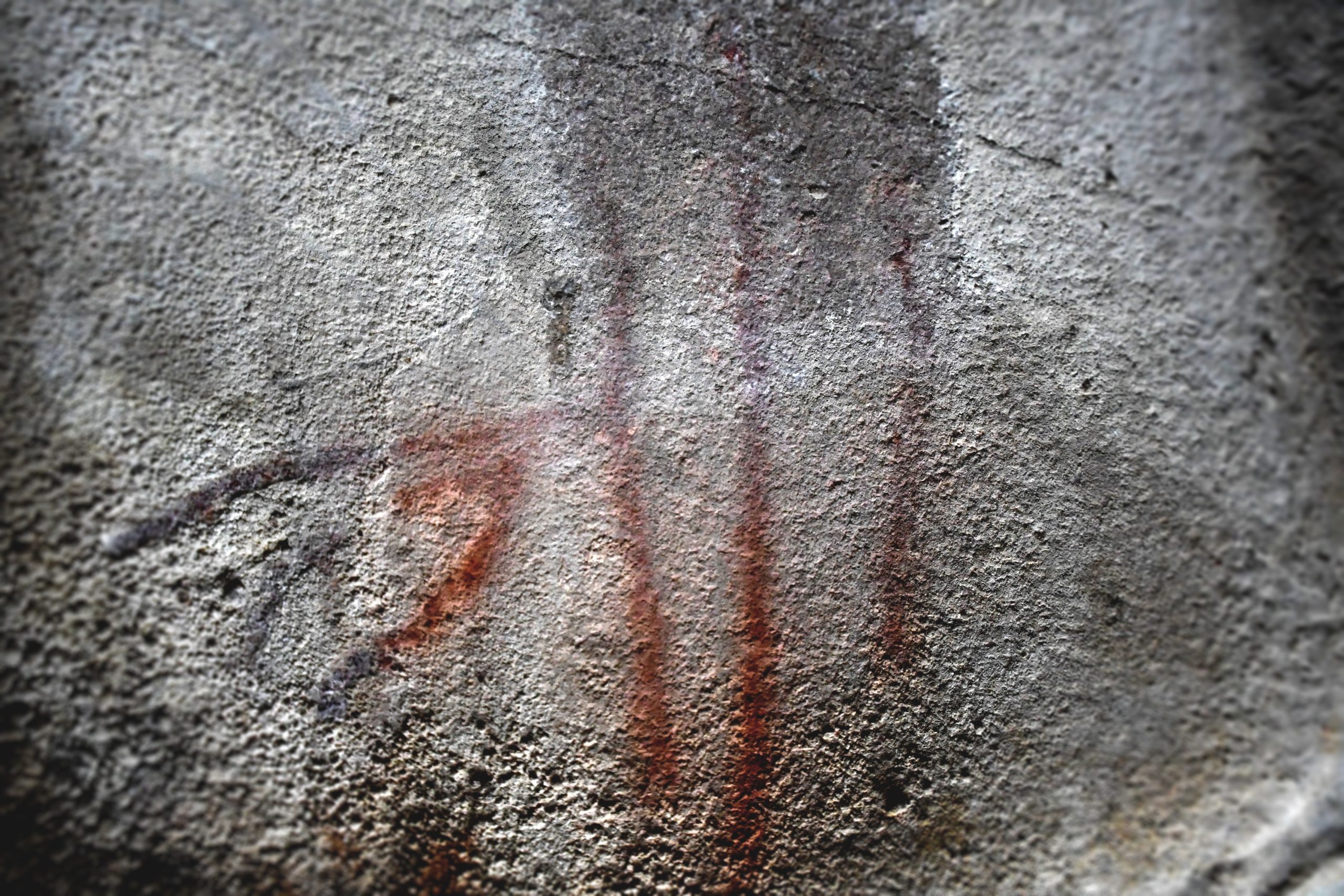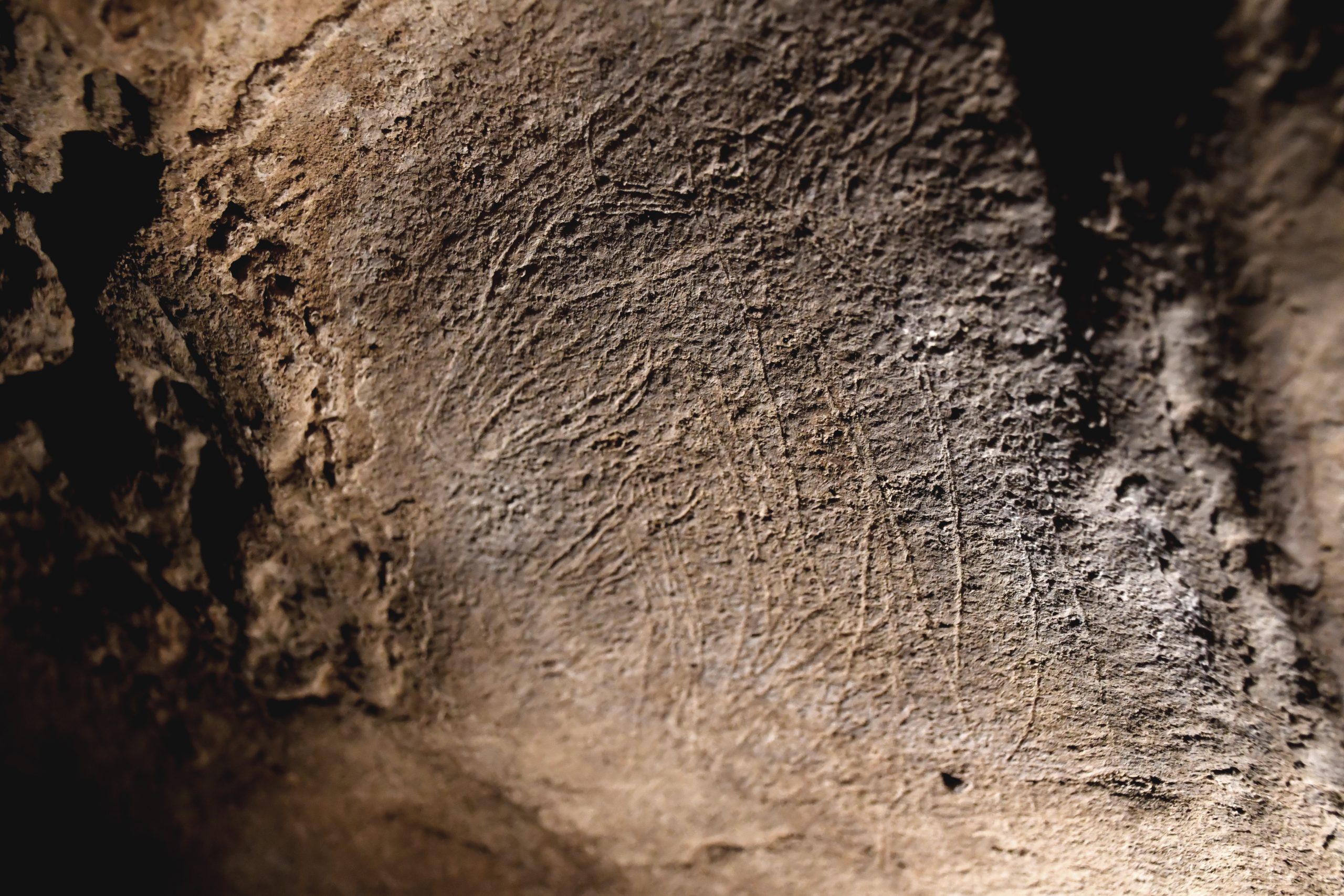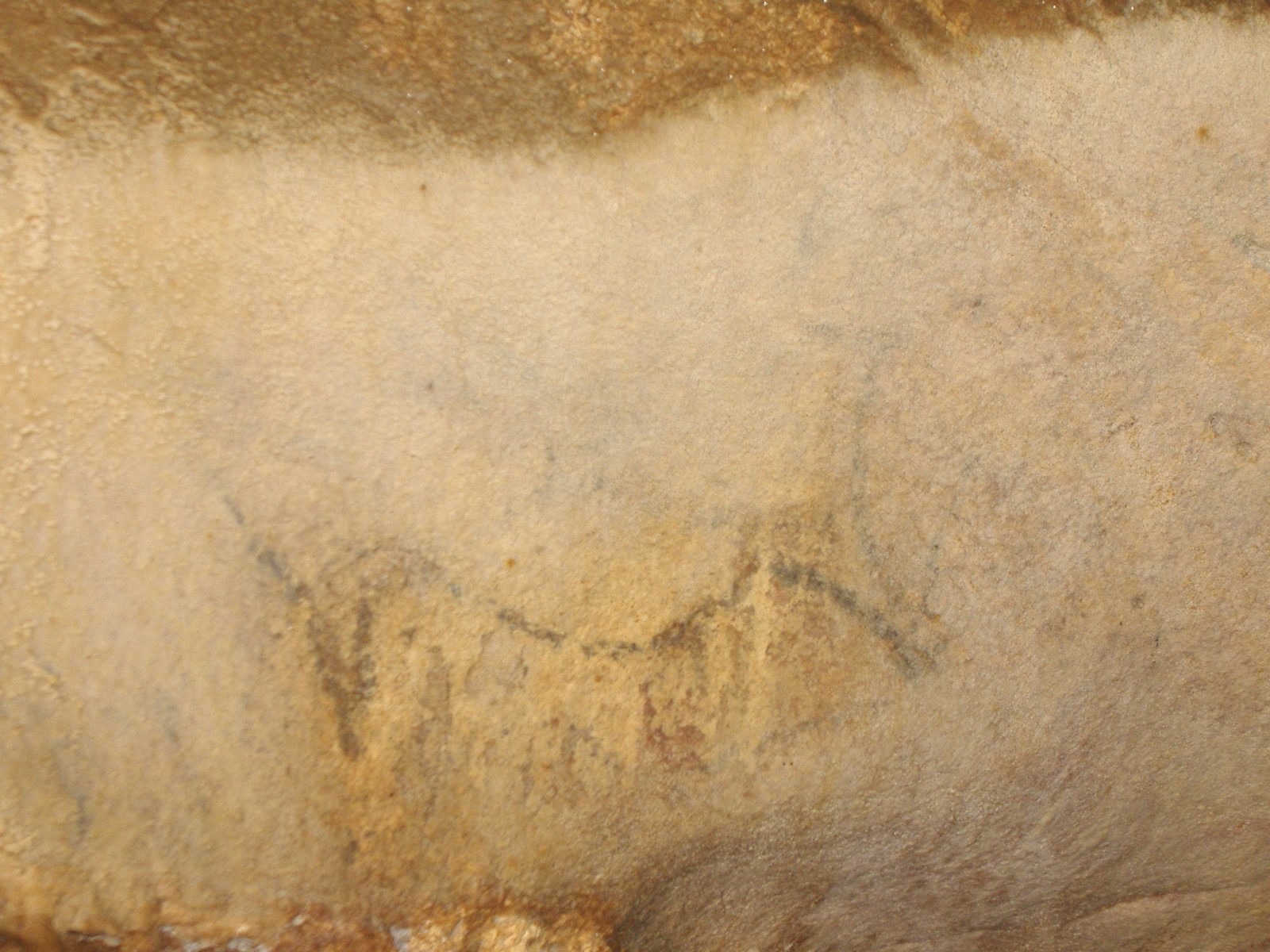Montemor-o-Novo
Escoural Cave
38º32'36.97"N / 8º08'15.66"O
Tuesday to Sunday
Interpretation Centre: Summer:
9.30 a.m. -1 p.m. and 2 p.m. - 6 p.m.; Winter: 9.00 a.m. -1 p.m. and 2 p.m.-5 p.m.
Guided Tours to Escoural Cave:
Morning visit at 10.30 a.m. / Afternoon visit at 2.30 p.m.
About
Escoural Cave
Escoural Cave is a natural cavity. It was discovered by chance on April 17, 1963, during the exploitation of a local quarry. It comprises several rooms and galleries distributed on three different levels. It was classified as a National Monument on October 25, 1963.
Its first occupation dates from the Middle Palaeolithic (50,000 years ago), when a group of hunter-gatherers of the Neanderthal species used it as temporary shelter and a foothold to hunt large mammals. Most remains of this first occupation were found in a gallery located SE of this cavity.
The second identified occupation occurred in the Upper Palaeolithic (35000 B.C. – 8000 B.C.) when this natural cavity was used by the first modern hominids (Sapiens) as a rock art sanctuary. The surfaces of the large entrance room and contiguous galleries were used to draw the first Art of Humanity. There are still animal representations (equine and bovine), as well as schematic signs, more difficult to interpret, of magical or religious nature.
The cave was used as a funerary space by local groups of farmers-shepherds in the Neolithic (5000 B.C. – 3000 B.C.), and it was closed at the end of this period – but we do not know if this was intentional or natural.
Access
Prepare your visit
For safety and conservation reasons, visits to Escoural Cave are subject to several restrictions and limitations.
This archaeological site has an Interpretation Centre located in Santiago do Escoural:
Rua Dr. Magalhães de Lima, 48
7050-555 Santiago do Escoural
Phone. 266857000 / 266769800
Open TUESDAY TO SATURDAY, except on holidays; visits to the cave are limited to 10 people at a time and last approximately 40 minutes.
Ticket price:
Adults – 3€
Seniors – 1.5€
Children under 12 – free
Reduced mobility
The archaeological site is not recommended to visitors with reduced mobility since wheelchairs or baby strollers cannot access it. Children should always be accompanied by a responsible adult.
Guided tours
Visits to Escoural Cave must be BOOKED IN ADVANCE in the Escoural Interpretation Centre. We recommend booking more than 24 hours before; depending on the time of the year and the number of visitors, it is advisable to book earlier.
Support

RESEARCH
Bibliography & useful links
ARAÚJO, Ana Cristina Reis da Silva; LEJEUNE, Marylise (1995). Gruta do Escoural: necrópole neolítica e arte rupestre paleolítica. In Trabalhos de Arqueologia, 8. Instituto Português do Património Arquitectónico e Arqueológico, Lisboa.
GARCÍA, Marcos; BAPTISTA, António Martinho; ALMEIDA, Manuel; BARBOSA, Fernando; FÉLIX, João (2000). Observaciones en torno a las grafías de estilo paleolítico de la Gruta de Escoural y su conservación (Santiago de Escoural, Montemor-o-Novo, Évora). In Revista Portuguesa de Arqueologia, vol. 3, nº 2. Instituto Português de Arqueologia, Lisboa, pp. 5-14. Disponível em: Consultar Artigo Completo → [Consultado a 12/05/2023].
MARQUES, João (2001). Conjunto Arqueológico do Escoural. In Património / Estudos, n.º 1, Instituto Português do Património Arquitetónico, Lisboa, pp. 59-60.
SILVA, António Carlos Silva (1995). Roteiros da Arqueologia Portuguesa, 4 – Gruta do Escoural. Instituto Português do Património Arquitectónico e Arqueológico (IPPAR), Lisboa.
SILVA, António Carlos Silva (2011). Uma Gruta Pré-Histórica no Alentejo. Escoural. Direcção Regional de Cultura do Alentejo, Évora.
SILVA, António Carlos; MAURAN, Guilhem; ROSADO, Tânia; MIRÃO, José; CANDEIAS, António; CARPETUDO, Carlos; CALDEIRA, Ana Teresa (2017). A Arte Rupestre da Gruta do Escoural Novos dados analíticos sobre a pintura paleolítica. In ARNAUD, José Morais; MARTINS, Andrea, Arqueologia em Portugal: 2017 – Estado da Questão, Associação dos Arqueólogos Portugueses, Lisboa, pp. 1379-1390. Disponível em: Consultar Artigo Completo → [Consultado a 12/05/2023].
https://www.patrimoniocultural.gov.pt/pt/patrimonio/itinerarios/alentejo-algarve/03/
https://arqueologia.patrimoniocultural.pt/index.php?sid=visitaveis&subsid=54576
https://arqueologia.patrimoniocultural.pt/index.php?sid=sitios&subsid=54576
http://www.monumentos.gov.pt/Site/APP_PagesUser/SIPA.aspx?id=2865
https://montemorbase.com/?s=Gruta+do+Escoural
https://culturaportugal.gov.pt/pt/conhecer/local/_drcalentejo/gruta-do-escoural/
https://www.youtube.com/watch?v=Fc3HXf7hjVs
https://www.youtube.com/watch?v=E5SVnY4NKq4
Fotogrametria
Gruta do Escoural Interior and Exterior
Gruta do Escoural Interior
Escoural Rock Art Painting Number 10
Escoural Rock Art Equine Engraving Number 47
Exterior Rock Art Panel, Escoural Cave, Portugal
Tholos do Escouzral
Enterramento Coletivo da Gruta do Escoural
Fragmento de Lamina Solutrense
Vaso/Vase, Tholos of Santiago do Escoural
Escultura Zoomórfica de Coelho
Ídolo Falange
Enterramento do Neolítico (Neolithic Burial)






